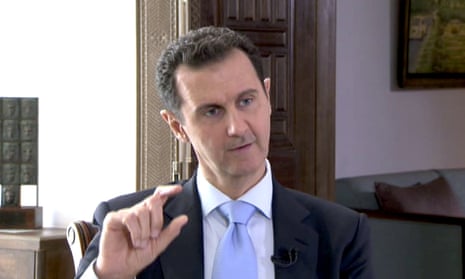The diplomatic pillar of the UK strategy on Syria, which underlies the decision on airstrikes, is the anticipation that the current set of international negotiations will eventually lead to a settlement that in turn will produce a common front against Islamic State.
It is the political counterpart to the controversial claim of a potential 70,000-strong anti-Isis force among the various rebel groups fighting in Syria. It is similarly vital to the government’s case, yet is just as vulnerable to allegations of wishful thinking.
“The best news is the peace process is under way, [involving] all the key partners, like Russia and Turkey, that will lead to a transitional settlement in Syria that will lead to the departure of President Assad, and a new government that can lead to elections in Syria,” the defence secretary, Michael Fallon, said, echoing talking points used repeatedly by ministers before and after the Wednesday night vote.
However, agreement among the growing number of external actors in Syria has thus far been elusive. In fact its absence has been a driving force behind more than four years of war.
The good news is that all those players are now coming to the same meetings in European capitals and sitting around the same table. The bad news is this proximity has shown no signs of bringing their agendas any closer together, and the Turkish downing of a Russian warplane threatens to lever them even further apart.
On 14 November, foreign ministers from the west and Russia, the Gulf monarchies and Iran, produced a joint statement in Vienna calling for a political transition that would “establish credible, inclusive and non-sectarian governance” in Syria within six months. A new constitution would be drawn up and there would be “free and fair elections” within 18 months. The statement however avoided mention of the main point of division that has kept the conflict going – the future of Bashar al-Assad.
“There is a continued unwillingness to stand down on some of the zero sum issues,” said Julien Barnes-Dacey, a Syria specialist at the European Council on Foreign Relations thinktank. “The Assad question is being danced around. All sides think they can play elections and constitution to their advantage. Iran and Russia think Assad will be able to control them. The west see them as a clear path towards removing Assad.”
The next step in the “Vienna process” will be another large international meeting, probably in Paris in the middle of the month. At the same time, the various opposition groups are supposed to be gathering in Riyadh to come up with a consolidated position. They are then meant to enter into UN-brokered preliminary discussions with the regime, beginning on 1 January.
It has all the trappings of a meaningful process, but each of the steps contains a certain amount of make-believe, analysts say.
“I’m not expecting anything in the next few months. There is still too much to fight for on the ground,” said Michael Stephens, a Middle East expert at the Royal United Services Institute. “Despite all these Russian airstrikes, the regime has not been able to recapture much ground around Idlib and Aleppo. At some point everyone is going to come to the realisation that nobody is going anywhere – neither the regime nor the opposition – but that time has not yet come.”
The spat between Presidents Vladimir Putin and Recep Tayyip Erdoğan over the shooting down of a Russian fighter jet over the Turkish border shows no signs of subsiding and could overshadow the meeting in Paris. “The mess just keeps getting messier by the day,” said Hassan Hassan, an analyst at Chatham House and author of Isis: Inside the Army of Terror.
He also held up little hope of progress in Riyadh. “The Saudi meeting was supposed to bring everyone together, but when I saw who was invited I saw the same old faces,” he said. “These are not serious people. These are people you see on TV and claim they are the opposition. They don’t have any connection to what is happening on the ground.”
Hassan added: “All sides are determined to stay the course. There is escalation with more foreign countries who have less and less leverage on the opposition.”
The heightened appearance of diplomacy so far shows little sign of producing real compromise.
“There is an energy to the process that we have not seen since the start of the conflict,” Stephens said. “Things are beginning to move but they are just moving bloody slowly.”
